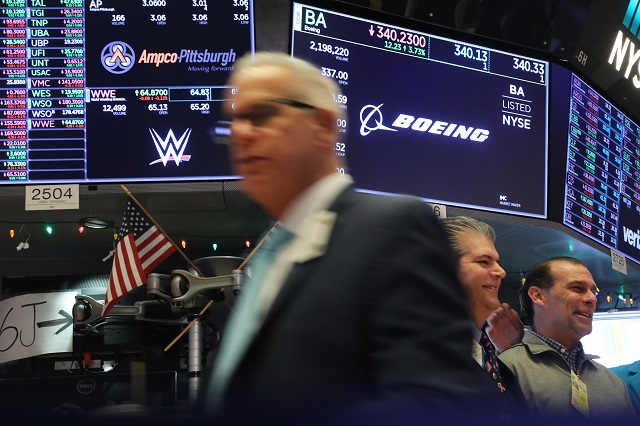
Photo Credit: Spencer Platt (gettyimages)
In 1956 a hugely influential book was published called The Organization Man. It described a world that was something like a “corporate welfare state.” A world in which, if you were able to land a job at a big industrial company like Ford or GE, you essentially had a stable job for life, with a decent salary, benefits, vacation days, and health care. If you’re under 40, this may sound like the stuff of science-fiction, but it described the economy as the author, William Whyte, saw it. And according to Whyte, this situation was stifling. Steady jobs at large corporations suppressed individuality and led to cookie-cutter, suburban malaise.
The world has, to put it mildly, changed. Un-ending security has given way to temporary gigs. What seemed like a stifling life as a cog in a corporate machine now seems, to many, like an enviable era, replete with benefits. So what drove the change? Nicholas Lemann, dean emeritus at Columbia Journalism School and author of the book Transaction Man: The Rise of the Deal and the Decline of the American Dream, says that workers’ lives shifted because of a new approach to economics.
Three Takeaways:
- Lemann points out that the corporate social order of the 50s and 60s wasn’t some ahistorical utopia. If you weren’t a white man, you were often excluded from the suite of benefits that were offered to workers. Sloan Wilson had it right; working for a corporation could be unsatisfying. And the perks workers got weren’t gifts given out by benevolent corporations; they were, instead, concessions won by unions in hard-fought struggles. Indeed, there were multiple factors that created the post-WWII American economy, ranging from relief at the end of a world war, to housing policy, to labor battles.
- Lemann places the blame/credit for the shift away from “corporate welfare” on something called “the shareholder revolution.” This was championed by economists like Milton Friedman and Michael Jensen, who thought that corporations’ primary responsibility was to maximize profits for shareholders. Annual raises and job security weren’t justified, if they didn’t add value to shareholders. In the 80s and 90s, the ideas of these economists were increasingly put into practice by Wall Street.
- According to Lemann, this shift had a lot of unintended consequences. Many workers ended up feeling betrayed by a system they once thought they could trust. Economic dissatisfaction has led to political and cultural dissatisfaction, which has led to the rise of politicians promising easy solutions to complex problems. Lemann doesn’t think that this world of corporate social welfare can be reinstated, but he believes that to understand the political world we live in now, you have to know what’s been lost.
More Reading:
- The New Yorker takes a look at what William Whyte’s ‘Organization Man’ can tell us about inequality today.
- Newsweek examines the legacy of Michael Jensen, Milton Friedman, and the Harvard Business School.
- Here’s an interview we did with Steven Pearlstein, a Pulitzer-Prize winning columnist for The Washington Post, about whether it is time to reinvent American capitalism.

